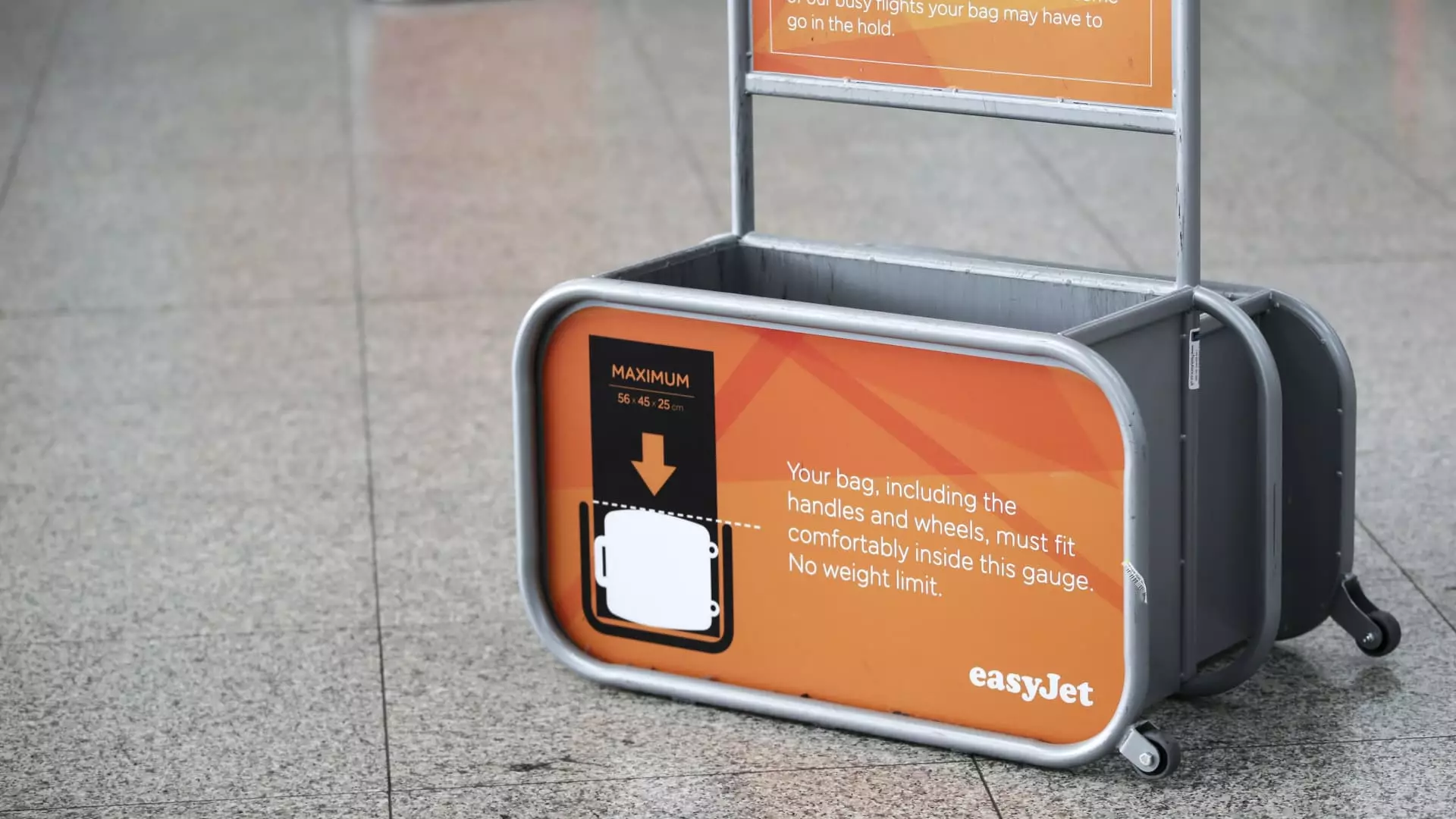EasyJet, a prominent player in the budget airline sector, recently announced remarkable figures regarding its financial performance for the year ending October. The airline’s ability to generate significant ancillary revenue reveals important trends within the aviation industry, but it is also accompanied by controversial regulatory scrutiny that speaks volumes about the evolving landscape of air travel.
Revenue Breakthrough Amidst Industry Challenges
In the financial year ending October, EasyJet reported an astonishing £3.59 billion (approximately $4.5 billion) from ancillary services, which include charges for additional baggage, seat selection, and other perks. This figure highlights a 22% year-on-year increase in ancillary revenue, with £2.46 billion specifically derived from the airline segment. The company’s CEO, Johan Lundgren, attributed this success in part to a shifting consumer preference towards personalized travel options. As airlines increasingly diminish what is included in the ticket price, there’s a clear trend toward monetizing individual components of the travel experience.
This revenue model takes advantage of consumers’ willingness to pay for enhanced comfort and convenience, thus allowing EasyJet to keep its base fares competitive. In this evolving sector, airlines are aligning profits with customer expectations, ensuring that those who desire added services can opt-in while others can stick to the basics. This model can potentially democratize access to travel, as it enables fare flexibility based on consumer choice.
However, EasyJet’s business practices have not been without contention. Recently, Spain’s Ministry of Consumer Rights imposed fines on EasyJet and several other low-cost carriers, accusing them of “abusive practices” including chargers for essential services like hand luggage and the reservation of adjacent seats. EasyJet specifically faced a €29 million fine, which Lundgren vocally contested on the grounds that it undermines European law.
This legal challenge points to a significant debate around consumer rights and the transparency of airline pricing. EasyJet contends it is unjust to restrict its ability to offer ancillary products that cater to varied passenger needs, especially as one-third of its customers opt not to purchase these additional services. Lundgren’s defense hinges on the premise that individual choice is paramount, and he argues that the enrichment of services keeps overall ticket prices lower for price-sensitive consumers.
The competitive dynamics in the air travel market further complicate EasyJet’s situation. The airline’s robust financial performance contrasts sharply with rival Ryanair, which recently reported an 18% dip in half-year profits despite an uptick in passenger numbers. The divergent trajectories of these two airlines underscore critical factors influencing the market: consumer behavior, pricing strategies, and operational challenges such as aircraft delivery delays from manufacturers like Boeing.
Both EasyJet and Ryanair have weathered storms since the COVID-19 pandemic but have since regained profitability. As the cost of air travel comes under increasing scrutiny, understanding how airlines navigate operational costs while delivering value to consumers could very well determine future market leaders.
Future Implications for EasyJet
While EasyJet is enjoying a notable increase in profits, the challenges posed by regulatory scrutiny cannot be overlooked. The fines inflicted by the Spanish authorities reflect a growing wariness regarding the transparency of pricing in an increasingly competitive landscape. The outcome of EasyJet’s dispute with Spain’s Ministry of Consumer Rights could set important precedents for how low-cost airlines manage their pricing strategies across Europe.
Moreover, as airlines grapple with maintaining profitability amid fluctuating demand and rising operational costs, they will have to balance regulatory compliance with innovative pricing strategies. The airline industry’s landscape is undoubtedly shifting, and players like EasyJet must adapt their business models while remaining attuned to consumer sentiments.
EasyJet exemplifies both the opportunities and challenges present in the current air travel market. Its ability to thrive amid regulatory scrutiny offers important lessons for the industry on consumer choice, pricing transparency, and competitive resilience. As air travel continues to evolve, keeping an eye on how airlines respond to these pressures will be crucial in forecasting the future trajectory of the sector.

